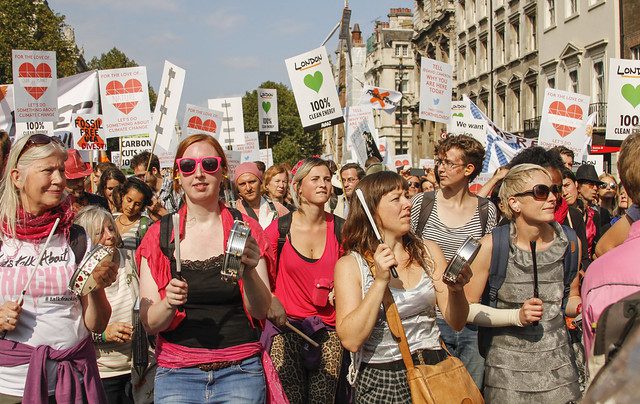


Direct Action Everywhere: A historic bill to ban the manufacture and sale of new fur products passed the California Assembly on May 28. This is a first-of-its kind victory that shows the power of the grassroots movement for animal rights. Now, the fur ban must pass through the Senate to officially become law.
>>>Show your support for the California fur ban with an email to the California Democratic Party. Email [email protected] and ask them to support AB 44. Here is a template email you can send.
Pesticide Action Network: Three consecutive juries have found Monsanto (now Bayer) guilty of knowingly exposing people to glyphosate, a probable human carcinogen and the active ingredient in their flagship herbicide, Roundup. Yet the Environmental Protection Agency is poised to reregister the chemical, dismissing science showing it can be harmful to human health. Internal documents revealed during recent legal actions show that Monsanto has had undue influence on the regulatory process.
>>>Tell EPA Administrator Andrew Wheeler to revise his recommendation that glyphosate be re-registered without restrictions to protect human health and the environment.
PETA: In 2017, a PETA Asia investigation revealed that donkeys in China—some as young as five months old—are bashed in the head with a sledgehammer and their throats are slit so their skin can be boiled down to make gelatin for a traditional Chinese medicine called ejiao. A breaking investigation has found horrific abuse inside Kenya’s donkey slaughter industry, which exists only to meet the demand for this product in China. The footage shows workers at government-sanctioned slaughterhouses mercilessly beating frightened donkeys.
>>>Urge Kenya’s cabinet secretary for agriculture to ban all Kenyan donkey slaughterhouses and to stop supporting China’s cruel trade in ejiao.
Skydog Sanctuary: Recently, Skydog Sanctuary, a wild horse sanctuary in Oregon, was asked to take Elsa, a mustang mare who had given birth to twins, Faith and Hope—an incredibly rare event. However, after traveling to the corrals to take all three of them, Skydog was notified that Elsa was to be part of a spay study in which her ovaries would be removed. It costs the U.S. taxpayers millions of dollars every year to roundup, warehouse and stockpile the nation’s wild horses. This special family unit has an opportunity to have a life of freedom on a beautiful 9,000 acre ranch, where they can live together in peace.
>>>Urge the Bureau of Land Management’s Burns Wild Horse and Burro Corrals to let Elsa, Faith and Hope be adopted by Skydog Sanctuary.
Cause for concern…

- Republicans and corporate executives support, and 72 nations have ratified, a pact to limit a powerful climate pollutant, but Trump’s not interested (New York Times Editorial Board)
- What would it mean to deeply accept that we’re in planetary crisis? (Dahr Jamail and Barbara Cecil, Truthout)
- Melting glaciers on Denali will unleash tons of human waste (Jason Daley, Smithsonian)
- Newborn Hawaii beach is already polluted with tiny pieces of plastic (Sarah Gibbens, National Geographic)
- Chemical lobby and health advocates square off on bills regulating toxic foam (Pat Elder, World Beyond War)
- 60 million pounds of imported produce could be dumped at the U.S.-Mexico border every year (Marilyn Noble, New Food Economy)
Round of applause…

- New study shows marching for climate change can sway people’s beliefs and actions (Alexandra Jacobo, Nation of Change)
- Study: Plant fats are healthier than animal fats (Joe Loria, Mercy for Animals)
- Private green investing tops $10 trillion, expanding clean energy, meatless plant food sector worldwide (Ethical Markets)
- Allowed to grow old: Radiant portraits of elderly animals (Marc Bekoff, Psychology Today)
- 7 reasons to stop hating pigeons (The Dodo)
Parting thought…
“If we surrendered to Earth’s intelligence we could rise up rooted, like trees.” —Rainer Maria Rilke